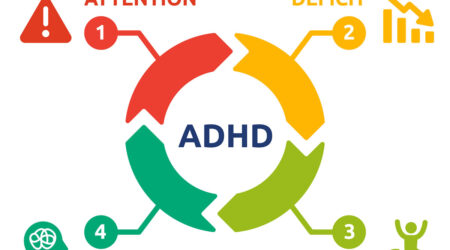The Role of Family Support in Managing ADHD
Supporting a partner with ADHD in the workplace requires empathy, understanding, and proactive strategies. ADHD, or Attention-Deficit/Hyperactivity Disorder, is a neurodevelopmental condition that affects attention, impulsivity, and executive function. When ADHD extends into the workplace, it can present unique challenges. However, with thoughtful support, partners can help manage these challenges and foster a productive, balanced work life. Here’s how you can support a partner with ADHD effectively:
1. Understand ADHD
The first step in providing support is to gain a thorough understanding of Effects of ADHD . Educate yourself about the disorder’s symptoms, such as inattention, hyperactivity, and impulsivity, and how they manifest in different environments, including the workplace. Recognize that ADHD can affect organization, time management, and stress levels. Understanding these aspects will help you empathize with your partner’s experiences and needs.
2. Open Communication
Open and honest communication is crucial. Encourage your partner to share their experiences and challenges related to ADHD. This can include discussing how their ADHD affects their work, what strategies they find helpful, and where they need additional support. Creating a safe space for these conversations can help your partner feel understood and less isolated.
3. Collaborate on Strategies
Work together to develop strategies that address specific workplace challenges. For example, if your partner struggles with time management, you might help them create a detailed schedule or set up reminders. If organization is an issue, explore tools like planners or digital apps designed for task management. Collaborating on these strategies can make your partner feel supported and involved in finding solutions.
4. Encourage Professional Help
Encourage your partner to seek professional help if they haven’t already. Therapy, coaching, or medication can be valuable in managing ADHD symptoms. A mental health professional can offer personalized strategies and coping mechanisms tailored to your partner’s unique needs. Support them in finding and working with a professional who understands ADHD and its impact on work life.
5. Be Patient and Flexible
Patience and flexibility are key. ADHD can cause fluctuations in focus and performance. Understand that there may be good days and challenging days. Be prepared to adjust expectations and provide reassurance during tougher times. Flexibility in how you approach tasks or support can help mitigate stress and build resilience.
6. Assist with Work Environment
Help create a conducive work environment. For instance, if your partner works from home, assist in setting up a dedicated, distraction-free workspace. If they work in an office, suggest modifications to their workspace that might reduce distractions or improve organization. Sometimes, small changes in the work environment can significantly enhance productivity.
7. Celebrate Small Victories
Recognize and celebrate your partner’s achievements, no matter how small. Positive reinforcement can boost their confidence and motivation. Acknowledge their efforts and successes regularly, whether it’s completing a task, meeting a deadline, or effectively managing a challenging project. Celebrating these victories reinforces their progress and encourages continued effort.
8. Manage Stress Together
ADHD can often lead to increased stress, which may affect both your partner and your relationship. Engage in stress management techniques together, such as exercise, mindfulness, or relaxation practices. Supporting each other in managing stress can strengthen your relationship and improve both your and your partner’s overall well-being.
9. Advocate for Workplace Accommodations
Encourage your partner to explore possible workplace accommodations that could help manage their ADHD symptoms. This might include flexible work hours, a quieter workspace, or modified deadlines. If your partner is comfortable, offer to help them communicate these needs to their employer. Understanding and advocating for necessary accommodations can create a more supportive work environment.
10. Practice Empathy and Avoid Judgment
Finally, practice empathy and avoid judgment. ADHD is a legitimate condition with real challenges, and it’s important to approach your partner’s experiences with understanding and compassion. Avoid blaming them for difficulties related to symptoms of ADHD and instead focus on finding constructive solutions. Support their efforts to manage their condition and reinforce that their struggles do not define their worth or capabilities.
Conclusion
Supporting a partner with ADHD in the workplace involves a combination of education, communication, collaboration, and empathy. By understanding ADHD and working together to address challenges, you can help create a supportive environment that allows your partner to thrive at work. Encourage professional help, be patient and flexible, and advocate for necessary accommodations to enhance their work experience. With mutual support and a proactive approach, you can help your partner manage their ADHD more effectively and foster a positive and productive work life.












Leave a Reply